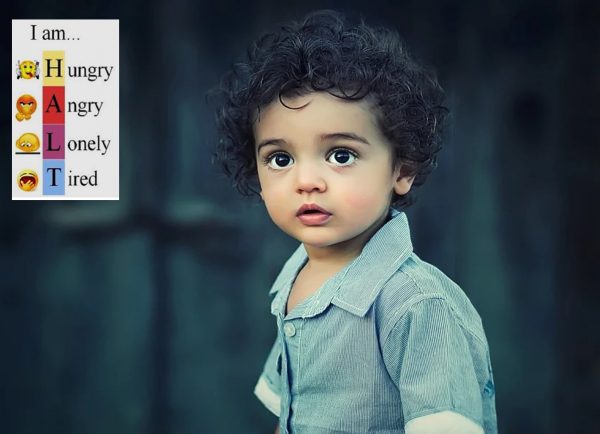
Help kids to express their emotions
As a parent or a teacher there are chances you come across a child who appears to be sad all the time. No smiles, not mingling with other children, does not play or does not talk much. Sometimes child may also throw tantrum. When we see sad face or tantrum throwing child, who goes to school and meltdowns often -it is a sign that the child is having difficulty with emotional self- regulation.
Help such kids to express their emotions!
Self-regulation is the ability to understand and manage one’s own behavior and reactions. Self-regulation develops in toddler and preschooler age and continue to develop into adulthood.
Expressing range of emotions from sadness/ anger to happiness is a normal behavior of all children. Some children can regulate their emotions. These children calm down after some excitement. They focus on task and move on to next task after going through some emotions.
Those children who cannot self-regulate their emotions and appear to be sad all the time, need help from adults. Some kids’ innate capacity of self-control depends on their personality and temperament. Sometimes environment in which a child growing will have an impact on emotional self-regulation. Children who have anxiety or ADHD may find it more challenging to manage their emotions. School going children mostly spend time either at home or in school. Both parents and teachers can help children to overcome inappropriate and impulsive behavior, so that child will not throw tantrums. Children who are unable to regulate their emotions need support and this is where emotional regulation activity might be helpful.
Emotional regulation activities help children in various ways.
- Child will develop self-awareness and management skill that will help them to focus on studies at school
- Children will learn to identify and manage their behavior and emotions
- Child will learn when and how to take decision, to be responsible at various situations, school and in public.
- They will become more independent and will learn to manage stress, anger and anxiety.
Five activities to help children to explore their emotions
- Plastic egg face: On plastic Easter eggs draw varieties of emotion faces. Teach them different emotions and in a group of children have them exchange the eggs and encourage them to make different emotion faces. Let each child explain what their emotion is.
- Mood meter: Helps children both at school and home to identify their emotions. Let them learn the emotions and have them relate their face to mood meter. Emojis are best way to teach this concept. It helps them to identify their feeling.
- Yoga poses: Help child to pick up different yoga poses (5-7 poses) and let them make sequence of poses. Have them name the pose and relate it to their emotions. For example, in a warrior 2 pose child can say “I am strong”. Tree pose can be “I am kind”, Downward dog – I am friendly, cobra pose or lion pose – I am brave, warrior 3 pose – I am good etc.
- HALTED – This acronym helps children to express emotions when they feel less than perfect. HALTED stands for H-Hungry, A-Angry, L-Lonely, T-Tired, E-Embarrassed, D-Disappointed. If you add OS to HALTED, it becomes HALTED-OS, O -Overwhelmed, S-Scared. When you ask a child how he or she feels, the acronym might be helpful to understand their behavior and will be able to help.
- Reading books: Pick up good children books. When child is disturbed have them pick up a book and read. Well written children books will help children to understand their emotions and how they feel at present.
As a parent you may need to consider professional help if your child
- Having difficulty in controlling behavior as the child grows
- If the behavior of child is dangerous to herself or others
- If your disciplining methods are not working
- If child has trouble in adjusting and interacting with others
- Does not seem to have developed social and communication skills as other children of same age group
- Showing and exhibiting more tantrums and unable to control
For more information on emotional self-regulation please visit:
https://raisingchildren.net.au/ , www.apperson.com, http://www.upcyclededucation.com/, https://www.teacherspayteachers.com/
Image credit: Image by Bessi from Pixabay (Free for commercial use)
Author: Sumana Rao | Posted on: March 23, 2023
« Teaching Children Not To Lie And How Not To Be Brutally Honest Encourage child to Play With Basic Hand on Toys »






















Write a comment